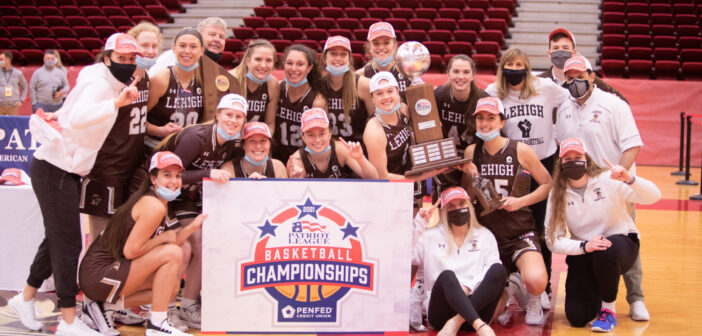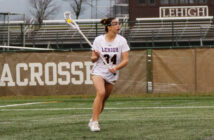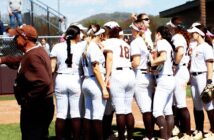On July 1, 2021, the NCAA implemented an interim policy that allows student-athletes from all three divisions to monetize their name, image, and likeness.
The news followed a June 21 Supreme Court opinion that stated the NCAA cannot limit education-related benefits athletes can receive.
The unanimous decision means the NCAA cannot ban payments to student-athletes in regards to their name, image, and likeness.
The U.S. Court of Appeals for the Ninth Circuit originally affirmed a ruling by District Judge Claudia Wilkin, who ruled in favor of the class-action lawsuit led by former West Virginia running back Shawne Alston.
In December 2020, the Supreme Court announced it would look at the appeal for the case of NCAA v. Alston.
Justice Neil Gorsuch authored the opinion that affirmed the U.S. Court of Appeals for the Ninth Circuit. The opinion claimed the NCAA was in violation of section I of the Sherman Antitrust Act.
The NCAA was forced to allow players to profit off their image beginning July 1 of this year. The announcement specified, however, that athletes must still follow their state NIL laws.
As a result, states are now racing to implement or amend NIL laws to prevent losing recruits to states where student-athletes can already profit off their name, according to Lehigh Athletic Director Joe Sterrett.
The Pennsylvania General Assembly passed a bill four days after the June 21 ruling, amending state law to allow college athletes to earn compensation based on their name, image and likeness.
When Governor Tom Wolf signed the state budget on June 30, one day prior to the NCAA policy taking effect, the bill regarding athletic compensation was included.
Due to the change in legislation, athletes can now profit off their autographs, receive compensation for special appearances, run their own athletic clinics, start businesses with their names attached to them and profit off their social media feed.
“It is a very easy way for athletes to profit,” senior basketball player Jeameril Wilson said. “Especially the bigger name athletes who are making back some of the money they are making (for) their schools.”
However, it is not permissible for athletes to benefit from their name above its market value.
This rule is in place to prevent boosters from paying athletes above the fair market as a backchannel to compensate them, according to Sterrett.
Sterrett said, however, that because the legislation is so new, it is impossible to know how the NCAA will handle above-market violations.
Lehigh is working with legal counsel to set up an educational process for its athletes on how to benefit from their name, image and likeness, according to Sterrett.
Lehigh athletes are taking advantage of the new rules. Reed Fenton, a junior basketball player, is partnering with the athletic apparel company Raised Rugged, which was started by his hometown friends.
“It’s a great thing for us athletes, because not only can we use our platforms to profit, but we can also help our friends who are trying to start brands or companies,” Fenton said.
Carley Barjaktarovich, a junior softball player, is partnering with the Lehigh Valley IronPigs, helping them promote merchandise and sell tickets, as well as making appearances at special IronPig events.
“It revolves around social media, promotions and working with them through merchandise,” Barjaktarovich said.
The Patriot League has already partnered with INFLCR, a platform that provides students with media content and tracks all transactions a player makes in an effort to ensure the security of players profiting off their image, Sterett said.
The new NCAA rules have opened up opportunities for athletes around the country to profit off their fame. University of Alabama Quarterback Bryce Young has already made close to a million dollars off of the new NIL laws, according to the Washington Post.






Comment policy
Comments posted to The Brown and White website are reviewed by a moderator before being approved. Incendiary speech or harassing language, including comments targeted at individuals, may be deemed unacceptable and not published. Spam and other soliciting will also be declined.
The Brown and White also reserves the right to not publish entirely anonymous comments.